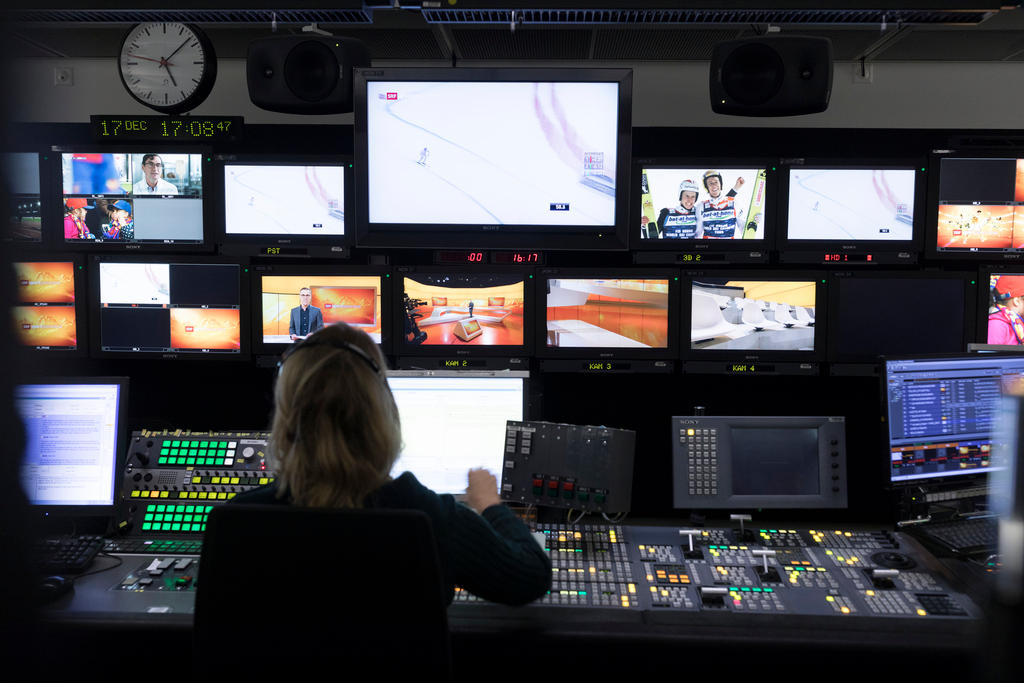
Television shapes Swiss opinion more than other media

Television is the most influential medium when it comes to shaping opinion in Switzerland, according to a new media monitoring website.
While the Swiss have plenty of media channels to keep informed, they tend to forge their opinions from television more than print, radio and online media.
The findings on Swiss media are available on www.monitoring-medias-suisse.chExternal link, a website launched on Tuesday. They are based on a study carried out by Publicom on behalf of the Federal Office of Communication.
The study concludes that the Swiss media landscape is diversified and efficient “despite difficult market conditions and certain worrying and potentially harmful concentration trends”.
Choice is much broader when it comes to German language-media, but French and Italian-language news sources are also enough to satisfy public information needs, it found.
The study found no immediate danger of monopolization of the media landscape. “In many areas, a duopoly with SRG SSR [Swiss Broadcasting Corporation, SBC] and Tamedia is emerging, but there is no indication that a single supplier could exercise too much dominance in the near future,” it said.
SBC provides services in all of Switzerland’s main languages and in English,. It is swissinfo’s parent company. Tamedia is Switzerland’s biggest private media company.
However, some vigilance is still required, the study says. SBC is in a very powerful position, which can reduce the prospects for regional competition. The public service broadcaster must also face the ageing of its audience, according to the report.
In addition, the persistent trend towards uniformity of programmes and editorial bodies allows a few companies to exert considerable influence with supra-regional content. By way of example, the study cites, among others, the Luzerner Zeitung in central Switzerland and Somedia in Graubünden.
SBC and Tamedia in the lead
At the national level, no news supplier has been able to establish itself as the dominant player. SBC is the most influential company (31%), followed by the Tamedia (17%). The latter also ranks second in French-speaking Switzerland (22%) behind SBC (33%) and far ahead of Editions Suisses Holding (4%) and Ringier (2%).
A handful of foreign television programmes are also able to influence public opinion, outranking private regional television stations. According to the results of the study, online media ranks last in all three regions.
Age also plays a role. For the most part, younger people form their own opinion after reading “20 minutes.” Older citizens prefer SBC radio and television programmes.

In compliance with the JTI standards
More: SWI swissinfo.ch certified by the Journalism Trust Initiative


























You can find an overview of ongoing debates with our journalists here . Please join us!
If you want to start a conversation about a topic raised in this article or want to report factual errors, email us at english@swissinfo.ch.